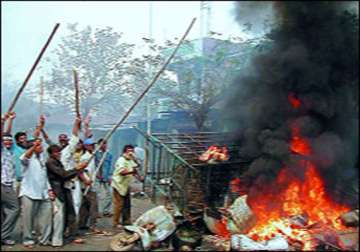Ahmedabad, Oct 7: A special court, hearing a post-Godhra riot case where four persons including three British nationals were killed in Gujarat's Sabarkantha district, has summoned two former British envoys to depose before it through video conferencing on November 23.
Special judge Geeta Gopi of Sabarkantha court issued summons to former Deputy British High Commissioners to India - Ian Reakes and Howard Parkinson - asking them to depose before the court via video conferencing next month. The summons were issued after the British government granted permission to the court to examine the envoys in the case, last month.
The examination of former British envoys is taking place on an application filed by original complainant and prime witness in the case, Imran Dawood, a British national himself who had survived the attack on him and others near Prantij in Sabarkantha.
The special investigation team (SIT) probing the case has also given its consent that the duo be examined as prosecution witnesses, said Dawood's counsel A M Malek. Three British nationals—Saeed Dawood, Mohammed Aswat Nallabhai, Shakil Dawood—and their Gujarati driver Yusuf Sulaiman were burnt to death during the post-Godhra violence on National Highway No.8 near Prantij in Sabarkantha on February 28, 2002.
Shakil's body was not found following which after a period of seven years, he was declared dead. Imran was badly injured in the incident, but he was saved by a patrolling police vehicle. He later lodged an FIR. Imran and four other witnesses have already deposed in the case.
In his application Imran had sought examination of Reakes on the ground that he was present with the then investigating officer during collection of ashes and bones of the dead.
He wants the statement of Parkinson to be recorded by the court because the officer had got an anonymous letter informing about the incident along with names of the accused. Last month, the court had examined British citizen Bashir Sufi, who described what had happened during their search of two missing persons immediately after the incident. He told the court that he had received an unnamed fax in response to the advertisements he published in various media sections regarding the missing persons.
Sufi also got an unnamed fax mentioning names of the accused. He revealed that he got names of 10 persons with allegations that they were involved in the killing. The designated court has examined 73 witnesses in this case. Of them, all three eyewitnesses turned hostile in 2009.
The relatives of the deceased have also filed a civil suit demanding compensation for the deaths and have sought the liability of the incident to be fixed on the state administration. PTI
Latest India News
